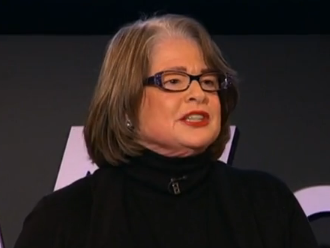As we age, our time horizons grow shorter and our goals change.
当我们逐渐变老,跟人生终点的距离不断缩短,我们的人生目标从而改变。
When we recognize that we don't have all the time in the world, we see our priorities most clearly.
当我们意识到时间不再多的可以尽情挥霍,就能清楚地看到事情的轻重缓急。
We take less notice of trivial matters. We savor life.
我们变得不在意琐碎之事了。我们享受人生。
We're more appreciative, more open to reconciliation.
我们更懂感恩,更向往和谐。
We invest in more emotionally important parts of life, and life gets better, so we're happier day-to-day.
我们更致力于精神层面上重要的东西,生活变得更好,所以日益快乐。
But that same shift in perspective leads us to have less tolerance than ever for injustice.
但是这种观念的改变也降低了对不公的容忍。
By 2015, there will be more people in the United States over the age of 60 than under 15.
到2015年,美国人口中60岁以上的人口将会超过不满15岁的人口。
What will happen to societies that are top-heavy with older people?
社会老龄化之后会有什么改变?
The numbers won't determine the outcome. Culture will.
数量并不能左右结果。文化才会。

If we invest in science and technology and find solutions for the real problems that older people face
如果我们投入科学和技术,为老龄化问题找出解决之道,
and we capitalize on the very real strengths of older people,
我们充分发挥老年人的真正优势,
then added years of life can dramatically improve quality of life at all ages.
那么,寿命的增加将会戏剧性地改善人们的生活质量。
Societies with millions of talented, emotionally stable citizens
无论是哪个年龄段,社会上有上百万的有才能而且情绪稳定的市民,
who are healthier and better educated than any generations before them,
与他们之前的任何一代人比,他们更健康,受过更高的教育,
armed with knowledge about the practical matters of life
用知识武装自己,了解人生的各种状况,
and motivated to solve the big issues can be better societies than we have ever known.
积极主动地去解决重大问题,社会将变得更加美好,比我们已知的更好。
My father, who is 92, likes to say,
我父亲已经92岁了,他喜欢说,
"Let's stop talking only about how to save the old folks and start talking about how to get them to save us all." Thank you.
“让我们不要再说解救老年人这种话了。我们要开始谈谈如何让老年人解救所有人。”谢谢。



